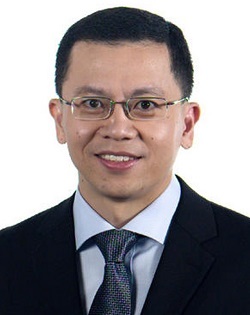Facts at a Glance
The Minister of Trade and Industry appoints members to the Singapore’s Competition and Consumer Commission (CCCS), including the chairman. Each term of office is no less than three years and no more than five years, and the Minister may reappoint CCCS members for a new term.
No positions within the agency are political appointments.
The total approved operating budget for the 2019 fiscal year was approximately S$19.93 million.
The CCCS has 71 staff as of 1 January 2020.
The chairman of the CCCS is appointed by the Minister of Trade and Industry. The CCCS decides on cases independently. Appeals against the decisions of the CCCS go to an independent Competition Appeal Board.
For corporate accountability, the CCCS is required to submit a copy of its annual report, audited financial statements and an auditor report to the Minister for presentation to Parliament.
Yes. Some sectoral regulators, such as those in energy, media and telecommunications, have jurisdiction over matters relating to competition in those sectors. When the Competition Act came into force, a number of sectors and activities were excluded from the Act for two main reasons:
• public interest considerations (e.g. national security, defence and other strategic interests); and
• sectors in transition from a monopoly to a more competitive market.
Sectoral regulators, with their greater domain knowledge and expertise, are deemed to be better placed to address and balance competition issues with other policy concerns using their own competition frameworks.
Where there are cross-sectoral competition issues, they will be dealt with by the CCCS in consultation with the relevant sectoral regulators.
Under the Competition Act, the decisions of the CCCS are independent and not subject to the scrutiny of politicians. Parties have the right to appeal against the CCCS’s decisions to the Competition Appeal Board (CAB). The CAB is an independent body comprising members appointed by the Minister for Trade and Industry. Parties can also appeal against a decision of the Competition Appeal Board to the High Court and subsequently the Court of Appeal in respect of a point of law, or as to the amount of a financial penalty.
In enforcing the Competition Act, the CCCS takes into consideration harm on the competitive process in a market caused by a particular conduct. However, the Act also allows for exemptions or exclusions for certain practices and conduct based on public interest or policy considerations, net economic benefit or net efficiencies arguments.
The CCCS's key initiatives for 2020 will focus on facilitating Singapore's digital economy, empowering and protecting consumers; and to foster a pro-enterprise and pro-innovation ecosystem. In this regard, the key sectors of focus will be on digital platforms, building, construction and maintenance services, and the beauty and wellness sectors.
CCCS has the powers to investigate when there are reasonable grounds to suspect infringements of the prohibitions under the Competition Act. CCCS is empowered to request for an undertaking to provide specified documents or specific information, and enter into premises with or without a warrant to obtain documents relating to an ongoing investigation.
CCCS is empowered to give directions to bring an infringement to an end; give directions on interim measures during an investigation; and impose financial penalties on undertakings for infringements of the Competition Act. In the event of an infringement, CCCS can impose substantial financial penalties of up to 10% of the turnover of the business in Singapore for each year of infringement, up to a maximum of three years.
An agreement which has as its object or effect the prevention, restriction or distortion of competition within Singapore is prohibited, even if the agreement is entered into outside Singapore or if a party to such agreement is outside Singapore. To date, CCCS has three cases involving global cartels. The most recent case took place in January 2018 when the CCCS issued an infringement decision against five capacitor manufacturers for engaging in price-fixing and the exchange of confidential sales, distribution and pricing information for aluminium electrolytic capacitors. Amongst the companies that were found to have infringed the Competition Act, one involved a Malaysian company.
The CCCS has a leniency programme as part of its enforcement strategy. It is targeted at businesses that have participated in cartel activities, but would nevertheless like to cease their cartel involvement and provide the CCCS with the evidence of the cartel activity. A successful leniency applicant that meets the conditions of the programme (including being the first one to come forward) may be granted immunity from financial penalties. Other applicants that do not qualify for total immunity may benefit from a reduction in financial penalties.
In addition, CCCS also operates a leniency plus programme that incentivises businesses that are co-operating with CCCS in a cartel investigation in one market (the first market) to inform CCCS about their participation in a completely separate cartel in another market (the second market). A successful applicant that is the first one to come forward may be granted immunity or up to 100% reduction from financial penalties in relation to the cartel in the second market and it will also be granted a reduction in the financial penalties, if any, imposed against it in the investigation in the cartel in the first market.
There are no criminal sanctions for infringements of the major prohibitions (section 34, section 47 and section 54) of the Competition Act. However, failure to comply or co-operate with CCCS’s investigations may constitute a criminal offence. It is an offence to refuse the provision of information pursuant to a requirement under CCCS’s power of investigations, obstruct an officer of CCCS in the discharge of his or her duties, intentionally or recklessly destroying or falsifying documents or providing false and misleading information to CCCS.
The major prohibitions of the Competition Act applies to undertakings. This can include individuals (e.g. operating as sole proprietorships) and unincorporated bodies of persons who are capable of carrying on commercial or economic activities relating to goods and services. Individuals may also be held liable for the criminal offences for failure to comply or non-cooperation as described in the answer to the preceding question.
Parties have the right to appeal against the CCCS’s decisions to the Competition Appeal Board (CAB). The CAB is an independent body comprising members appointed by the Minister for Trade and Industry. Parties can also appeal against a decision of the Competition Appeal Board to the High Court and subsequently to the Court of Appeal on a point of law, or as to the amount of a financial penalty. There are also rights of private action provided for under the Competition Act.
Thus far, the Competition Appeal Board has upheld CCCS’s decisions on liability issues for all appeals brought before it.
A person who has suffered loss or damage as a result of an infringement of sections 34, 47 or 54 of the Competition Act may seek relief in civil proceedings in a court. This right of action may only be exercised after the CCCS has made a decision of infringement and the appeal process has been exhausted. There is a limitation period of two years for the commencement of such private actions from the time that CCCS made the decision or from the determination of the appeal, whichever is the later.
The Act applies to all undertakings, i.e. all natural or legal persons capable of commercial or economic activity, regardless of whether they are foreign-owned, Singapore-owned, or owned by the Government or its statutory boards. However, the Act does not apply to activities, agreements, and conduct of the Government, statutory bodies, or entities acting on their behalf. Government-linked companies are covered by the Act. Certain sectors such as energy, media, telecommunications, which have sectoral regulators with their own set of competition frameworks and regulations are also excluded from the Competition Act. A few other activities are also excluded as specified in Paragraph 6 of the Third Schedule to the Act, including supply of potable water; supply of wastewater management services; supply of scheduled bus and rail services and maritime cargo handling operations. The full list of exclusions can be found in the third schedule (exclusions from section 34 prohibition and section 47 prohibition) and the fourth schedule (exclusions from section 54 prohibition) of the Competition Act.
Economists are in the Business and Economics (BE) Division and the Policy and Markets (PM) Division. The BE Division provides expert economics inputs and analysis to investigations and competition cases.
The PM Division works closely with other government agencies to engage and advise them on national competition matters. In addition, the PM Division conducts market studies and collaborates with academic and research institutions and think tanks on suitable areas of research on competition policy and law.
The CCCS adopts a voluntary notification system.
Yes. In 2018, CCCS issued a Statement of Decision (Provisional) to the parties, finding that the proposed acquisition was likely to result in the substantial lessening of competition in the market for the supply of marine water treatment chemicals in Singapore. The proposed transaction was subsequently abandoned by the parties, and the notification was withdrawn.
Yes. One recent example involves a merger involving private clinical laboratories. CCCS conditionally approved the merger of two private clinical laboratories after accepting commitments from the merged entity. The conditions committed by the merged entity applies for four years and include: ensuring other competing labs have access to testing services supplied by the merged party on a fair, reasonable and non-discriminatory basis; allowing contracted customers to switch to other suppliers; allowing early termination of contracts without cause subject to a prior written notice and requiring the merged entity to maintain its prices for certain types of customers.
CCCS continually reviews the Competition Act to ensure that it is relevant and up-to-date. Our most recently completed review was completed in May 2018, when the Competition (Amendment) Act came into effect. Amongst the main changes to the Act are: (a) changes to empower CCCS to accept legally binding and enforceable commitments for anti-competitive conduct relating to sections 34 and 47 prohibitions so as to address and resolve the competition concerns arising from the conduct; (b) streamlining and simplification of the interview process by allowing CCCS to conduct general interviews during inspections and searches under section 64 and section 65 of the Act respectively; (c) to provide more certainty to businesses and stakeholders by providing for confidential advice for anticipated mergers under the Act.

